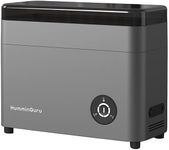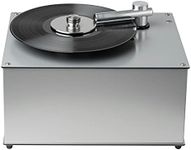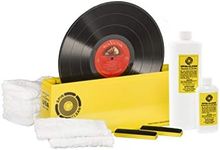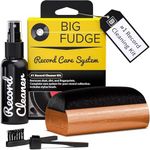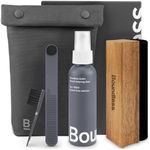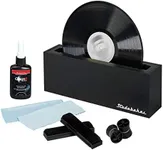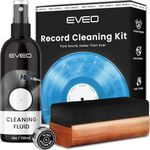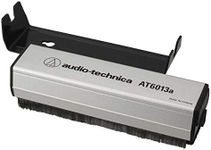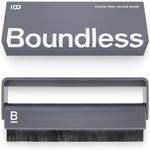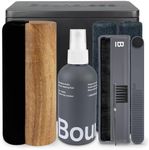Buying Guide for the Best Record Cleaners
When it comes to picking the right record cleaner, it's important to understand that maintaining your vinyl records is crucial for preserving their sound quality and longevity. A good record cleaner will help remove dust, dirt, and other debris that can cause scratches and affect playback. To choose the best record cleaner for your needs, you should consider several key specifications and features. Understanding these will help you make an informed decision and ensure your records stay in top condition.Cleaning MethodThe cleaning method refers to how the record cleaner removes dirt and debris from your vinyl records. There are several types, including manual brushes, vacuum-based cleaners, ultrasonic cleaners, and cleaning solutions. Manual brushes are simple and affordable but require more effort. Vacuum-based cleaners are effective and thorough but can be more expensive. Ultrasonic cleaners use high-frequency sound waves to clean records and are very effective but also tend to be pricier. Cleaning solutions are used with brushes or cloths and can be a good middle ground. Choose a method based on how much effort you're willing to put in and how thorough you want the cleaning to be.
Ease of UseEase of use is about how simple and convenient the record cleaner is to operate. Some cleaners require manual effort, such as using a brush or applying a solution, while others are more automated, like vacuum or ultrasonic cleaners. If you prefer a quick and easy process, an automated cleaner might be the best choice. However, if you don't mind spending a bit more time and effort, a manual cleaner can be just as effective. Consider your own preferences and how much time you're willing to dedicate to cleaning your records.
PortabilityPortability refers to how easy it is to move and store the record cleaner. Smaller, manual cleaners are typically more portable and can be easily stored when not in use. Larger, automated cleaners may require a dedicated space and are less convenient to move around. If you have limited space or plan to take your cleaner with you, a more portable option might be better. On the other hand, if you have a dedicated space for cleaning and don't need to move the cleaner often, a larger, more stationary model could be suitable.
Cleaning TimeCleaning time is the amount of time it takes to clean a record using the cleaner. Manual methods can take longer as they require more effort and precision. Automated cleaners, such as vacuum or ultrasonic models, can clean records more quickly and efficiently. If you have a large collection of records and want to clean them in a short amount of time, an automated cleaner might be the best choice. However, if you only have a few records or don't mind spending more time on the cleaning process, a manual cleaner can be just as effective.
MaintenanceMaintenance refers to the upkeep required to keep the record cleaner in good working condition. Manual cleaners typically require less maintenance, as they have fewer moving parts. Automated cleaners, especially vacuum and ultrasonic models, may require more regular maintenance to ensure they continue to function properly. Consider how much time and effort you're willing to put into maintaining your record cleaner. If you prefer a low-maintenance option, a manual cleaner might be the best choice. If you're comfortable with a bit more upkeep, an automated cleaner can offer more convenience and efficiency.
